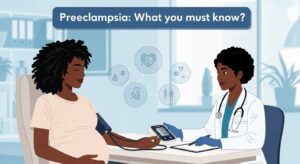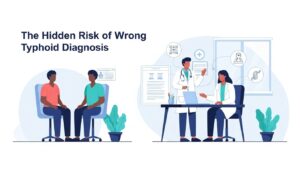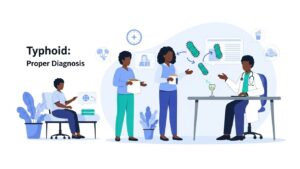In recent years, in vitro fertilization (IVF) has become an increasingly common solution for couples struggling with infertility. As this advanced reproductive technology continues to advance and become more accessible, many people are left wondering about the differences between an IVF pregnancy and a natural pregnancy. While the initial stages of an IVF pregnancy may differ slightly from a natural conception, the pregnancy itself is virtually indistinguishable once the embryo successfully implants in the uterus. In this article, we’ll explore the key differences and similarities between IVF and natural pregnancies, dispelling common myths and misconceptions along the way.
The IVF Process
To fully understand the differences between IVF and natural pregnancies, it’s important to first grasp the basics of the IVF process. In a natural conception, a woman’s egg is fertilized by a man’s sperm inside the fallopian tube. The fertilized egg, or zygote, then travels to the uterus where it implants and develops into an embryo and fetus. In contrast, IVF involves several complex steps:
- Ovarian stimulation: The woman takes fertility medications to stimulate her ovaries to produce multiple mature eggs for retrieval.
- Egg retrieval: The mature eggs are retrieved from the woman’s ovaries using a minor surgical procedure.
- Fertilization: The retrieved eggs are combined with sperm in a lab dish, where fertilization occurs. The fertilized eggs are then allowed to develop into embryos.
- Embryo transfer: One or more embryos are selected and transferred into the woman’s uterus using a thin catheter. Any remaining high-quality embryos may be frozen for potential future use.
- Implantation: The transferred embryo(s) implant in the uterine lining, initiating a pregnancy.
The First Two Weeks: Awareness and Symptoms
The primary difference between IVF and natural pregnancies during the first two weeks is the level of awareness. In a natural conception, most women are unaware of their pregnancy until a missed period or other symptoms appear, often a month or more into the pregnancy. However, IVF patients are acutely aware of their pregnancy from the moment of embryo transfer. This heightened awareness can lead to increased anxiety and sensitivity to early pregnancy symptoms. Additionally, the fertility medications taken during IVF can mimic early pregnancy symptoms such as fatigue, bloating, nausea, and breast tenderness. This can make the “two-week wait” between embryo transfer and the official pregnancy test particularly challenging for IVF patients. It’s important to note that home pregnancy tests taken during this stage may be unreliable for IVF patients, as their bodies may still have elevated hormone levels from the fertility medications. The only way to confirm a pregnancy with certainty is to wait for the official blood test at the fertility clinic.
10 Weeks and Beyond: Indistinguishable Pregnancies
Around 10 weeks, if all is well, an IVF patient will typically be released into the care of a regular obstetrician, and from that point on, the pregnancy is virtually indistinguishable from a natural pregnancy. This is a significant milestone, as it marks the end of the heightened monitoring and care provided by the fertility specialist. While it’s understandable for IVF patients to continue feeling anxious until their baby is safely in their arms after delivery, by 12 weeks, most feel comfortable sharing their pregnancy news with their wider social circle. At this stage, it’s important for IVF mothers to focus on taking care of their health and wellbeing, and to enjoy the special moments of pregnancy, just as any expectant mother would.
Pregnancy Symptoms and Complications
The symptoms of an IVF pregnancy are essentially the same as those of a natural pregnancy, but IVF patients may be more aware of and sensitive to these changes. Morning sickness, mood swings, frequent urination, and unusual cravings are all common experiences for both IVF and naturally conceived pregnancies. However, it’s important to note that certain complications may be more common in IVF pregnancies. Conditions such as high blood pressure, gestational diabetes, anaemia, growth restriction, and preterm delivery are sometimes more prevalent in IVF pregnancies, particularly because women undergoing IVF are often of advanced maternal age and may have underlying hormonal or medical issues. It’s crucial for IVF patients to work closely with their healthcare providers to monitor for any potential complications and to address them promptly if they arise. Regular prenatal visits, ultrasounds, and screening tests can help ensure a healthy pregnancy and baby.
Delivery and Beyond
When it comes to the delivery process, there is no difference between IVF and natural pregnancies. Both IVF and naturally conceived babies can be delivered vaginally, and the choice of delivery method is based on the individual circumstances of the pregnancy and the preferences of the expectant mother and her healthcare team. Over the past four decades, numerous studies have confirmed that IVF babies are physically and mentally just as normal as babies conceived naturally. The IVF process itself does not increase the risk of birth defects or developmental issues. After delivery, IVF mothers can expect to experience the same joys and challenges of parenthood as mothers who conceived naturally. Bonding with their baby, breastfeeding, and navigating the ups and downs of early parenthood are all part of the universal experience of motherhood, regardless of how conception occurred.
Addressing Myths and Misconceptions
Despite the overwhelming evidence that IVF pregnancies are virtually indistinguishable from natural pregnancies, there are still many myths and misconceptions surrounding IVF. Some people believe that IVF babies are “artificial” or “unnatural,” while others think that IVF pregnancies are automatically high-risk or require special handling. These beliefs are simply not true. IVF is a highly advanced and well-studied reproductive technology that helps couples overcome infertility. The embryos created through IVF are no different from those conceived naturally, and once implanted in the uterus, they develop and grow just like any other pregnancy. It’s important for IVF patients and their loved ones to be aware of these myths and to seek accurate information from reliable sources, such as their fertility specialists and reputable medical organizations. By dispelling these misconceptions, we can help create a more supportive and understanding environment for IVF families.
Conclusion
In conclusion, while the initial stages of an IVF pregnancy may differ slightly from a natural conception due to the heightened awareness and medical interventions involved, the pregnancy itself is virtually indistinguishable once the embryo successfully implants in the uterus. The symptoms, complications, delivery process, and long-term outcomes are all very similar between IVF and naturally conceived pregnancies. It’s important for IVF patients to understand that their pregnancy is no less “real” or “normal” than a natural pregnancy. With the right support and information, they can enjoy the journey of pregnancy and parenthood just like any other expectant mother. By embracing the similarities between IVF and natural pregnancies, we can help create a more inclusive and supportive environment for all families, regardless of how their children were conceived.
Contact Well-Life Hospital
At Well-Life Hospital, a renowned infertility treatment centre located at No. 12 Atbara Street, Wuse 2, Abuja, FCT, we are dedicated to providing compassionate and comprehensive care to help you on your journey to parenthood. To learn more about our IVF services and to book a consultation, visit our website or contact us today.
- Website: welllifehospital.com
- Instagram: @welllifehospital
- Facebook: Well Life Hospital
- Twitter: @Well_Life_H
- TikTok: @welllifehospital
- YouTube: Well Life Hospital
- Mobile : +234 906 000 4314
… Your wellbeing is our goal.






